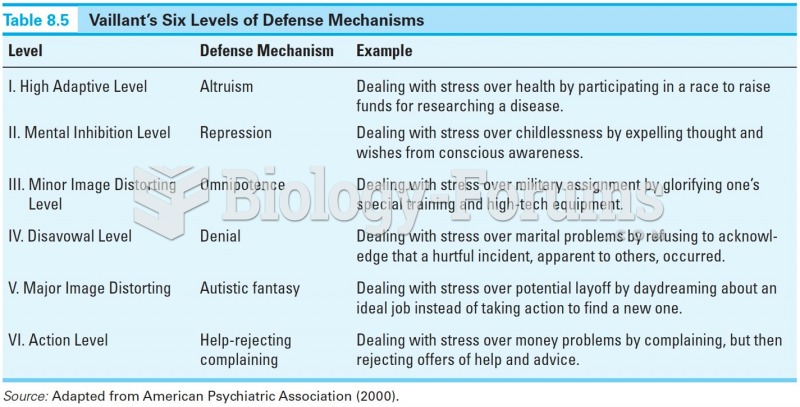|
|
|
The Centers for Disease Control and Prevention has released reports detailing the deaths of infants (younger than 1 year of age) who died after being given cold and cough medications. This underscores the importance of educating parents that children younger than 2 years of age should never be given over-the-counter cold and cough medications without consulting their physicians.
Interferon was scarce and expensive until 1980, when the interferon gene was inserted into bacteria using recombinant DNA technology, allowing for mass cultivation and purification from bacterial cultures.
Approximately 500,000 babies are born each year in the United States to teenage mothers.
A seasonal flu vaccine is the best way to reduce the chances you will get seasonal influenza and spread it to others.
More than 30% of American adults, and about 12% of children utilize health care approaches that were developed outside of conventional medicine.







